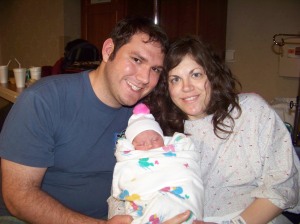I came upon Luke 16 finally in my Greek reading. It reminded me of some study I did a few years back on whether the narrative of the Rich Man and Lazarus was a parable or not. Having read through Luke for the last 7 months up to this, it has further reinforced my conclusions. So enjoy something from the archives!
I recently heard a sermon on Luke 16 about the Rich Man and Lazarus. I have for the most part always been of the persuasion that this was NOT a parable, but rather a recounting of actual events. For some odd reason, I decided to look a little deeper into the passage regarding whether or not this was a parable. I just thought I’d pass on some of my findings.
Reasons Against being a Parable…
1. The Lazarus character is named. In the rest of the parables we have from Jesus, no characters are named. This might suggest something different is going on here. Complicating this is the fact that John’s Gospel records Jesus’ resurrection of his friend Lazarus after 4 days of death, thus supplying for some the referent of the Luke 16.
2. This narrative is not introduced by the common Synoptic parable formula “The kingdom of God/Heaven is like…”
3. The story includes other events with surprising similarity to “real” events described elsewhere in Scripture. Certainly, the painful judgment of the rich man and the blissful reward of Lazarus match with other Biblical descriptions of heaven/hell. The use of these realities within the story would then indicate the reality of this story itself. For many, to take the narrative as a parable would be to deny a literal coming judgment of punishment and reward after death.
Reasons For Being a Parable…
1. The story follows a common Lukan method of parable introduction. Many of the parables in Luke start similar to this: “There was a man…” Some Examples:
- Luke 10:30, ““A man was going down from Jerusalem to Jericho..” in the parable about the Good Samaritan. (I add that no one uses the fact that “Samaritans” were historical people to argue for the historicity of this parable.)
- Luke 12:16– “A rich man’s land was very productive.” Another parable about the rich and coming judgment. This one even includes God himself entering the story to bring judgment.
- Luke 14:16-“A man was giving a large banquet and invited many.” The man in this story is an illustration of God.
- Luke 15:11– “A man had two sons.” Here is another parabolic use of a man (the Father) as an illustration of God.
- Luke 16:1, “There was a rich man who received an accusation that his manager was squandering his possessions.” This is the final parable preceding the Rich Man and Lazarus. In fact, the two share a context of Jesus’ chastising the Pharisees and scribes. Both even begin “A rich man…”
- Luke 18:2, “There was a judge in one town who didn’t fear God or respect man.” A similar example, only the man is called a judge from the beginning of the story.
- Luke 18:10, “Two men went up to the temple complex to pray,” Now though I have heard a well-meaning Bible teacher or two describe in detail Jesus’ watching these two men at the temple, verse 9 clearly tells us that this is indeed a parable. Note that Luke’s introduction of parables is not consistent. (Many clear parables are not introduced as such.) He seems to introduce them as parables primarily when he wants to emphasize the reason of the parable.
- Luke 19:12, “A nobleman traveled to a far country to receive for himself authority to be king and then return.” In Greek, this literally begins “A certain noble man…” following the formula often seen above.
- Luke 20:9, “A man planted a vineyard, leased it to tenant farmers, and went away for a long time.”
*It appears from these examples in Luke that a major marker of a parable was beginning a story like this “A certain man” (Greek: “a‡nqrwpo/ß tiß”). Especially with the narrative occurring in the same discourse after a clear parable that also begins “A certain rich man…”, this is a strong point from the Biblical evidence itself, namely Luke’s method of telling parables. In fact, only Luke 13:18, 20 contain the phrase “The kingdom of heaven is like” found more often in Matthew’s Gospel. (This would invalidate point 2 under “Reasons Against”, especially since the formula only appears in Mark once!).
2. A character’s name does not rule out the possibility of the parable. I alluded to this above when mentioning the parable of the Good Samaritan. There, Levites and priests are also named in the text. It seems a little disingenuous to require that a person’s first name (no family description is given) must allude to a specific historical individual when a national name or occupational title does not do the same. Consider the parable of the Pharisee and the publican. The name Lazarus means “God is my help” and is probably used to illustrate a truth of the parable—the only help of the poor beggar was indeed God. This name cannot be intended by Luke to remind his readers of the Lazarus in John 11 that Jesus raised! In fact, Lazarus is not mentioned in Luke’s telling of the account of Mary and Martha (probably the same as Lazarus’ sisters) in Luke 10. The NET notes remind us that by including a name for the poor man, Jesus can show that the rich man in Hades even knew the poor man’s name but had no such concern for his well-being while on earth.
3. Seeing this text as historical to prove theological reasons elsewhere developed is quite simply eisegesis, not good exegesis. Some are persuaded that the theological arguments for a literal place of judgment after death would be devastated if this story is not historical but a parable. They need to do their homework. The doctrine of hell is alive and well without this story. Others have created complicated eschatological scenarios regarding “Abraham’s bosom” and Hades that rely heavily on this text, and therefore hold dearly to it. The good news is two-fold.
a. First, the point of the story, regardless of the parable/history debate, is not meant as a description of Heaven and Hell, outside of the issue of comfort/torment, which are ideas clearly taught elsewhere in Scripture. The point of the story is that the rich Pharisees in chapter 16 are the ones in danger of going there! I have heard many sermons calling for pity for those in hell from this text. A love for those without Christ is Biblical, but not the point of this story. The point of this story is for the wealthy (especially the “religious” wealthy) to be warned of divine judgment, and the outcast who rely on “God, my help” (Lazarus) can take comfort in the future reversal of their plight.
b. Second, the parabolic nature of the people in the story does not necessarily discount the reality of coming judgment. (After all, that is the point of the story for the wealthy Pharisees.) Rather, it builds off known categories in Scripture of God as judge and simply inserts a hypothetical story into that grid to make a point. I refer one back to the parable in Luke 12 where Jesus uses God himself as a character in the parable to teach a point. Would this mean God doesn’t really exist or never really judges? No! The fact that both those statements are really true actually makes the point of the parable. Parables are illustrations, and illustrations from true material are powerful.
It would be a shame for us to miss Jesus’ point in order to be “theologically” correct here. By missing Jesus’ point, we not only might miss out on helpful truth, but on Jesus himself. Those creating complex theological categories from text like this need to allow the more clear Scripture to interpret the obscure.
Conclusion:
The point of the narrative is a warning to the rich Pharisees of judgment to come if they ignore the Law, Prophets, and even one rising from the dead. Let no one miss that! But, based on exegesis, this story clearly fits into the Lukan pattern for telling a parable. It also contextually fits within a sequence of several parables in Luke 15-16 aimed at the Pharisees.
Sometimes a little Bible study can change your theology or at least challenge you to teach right doctrine from correct texts. It did for me in this case.
Filed under: Bible Thoughts | Tagged: Jesus, Luke, New Testament | 2 Comments »




